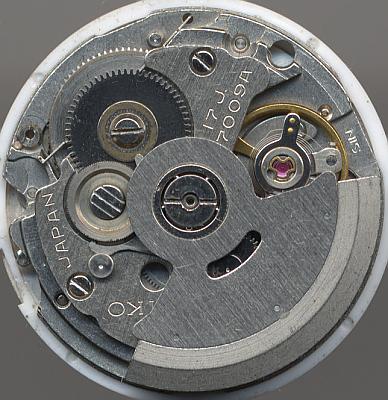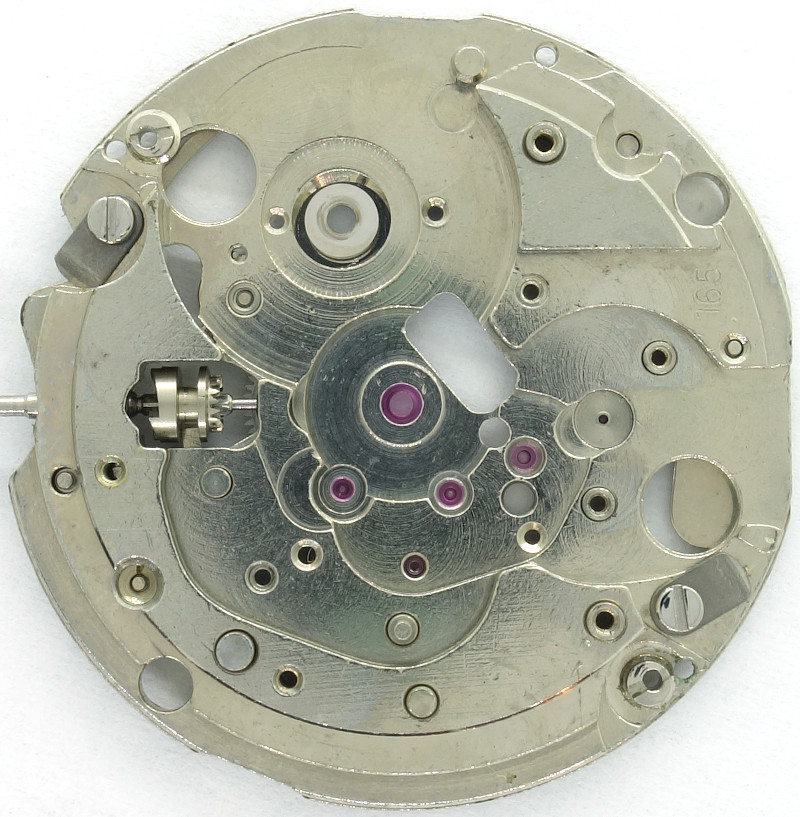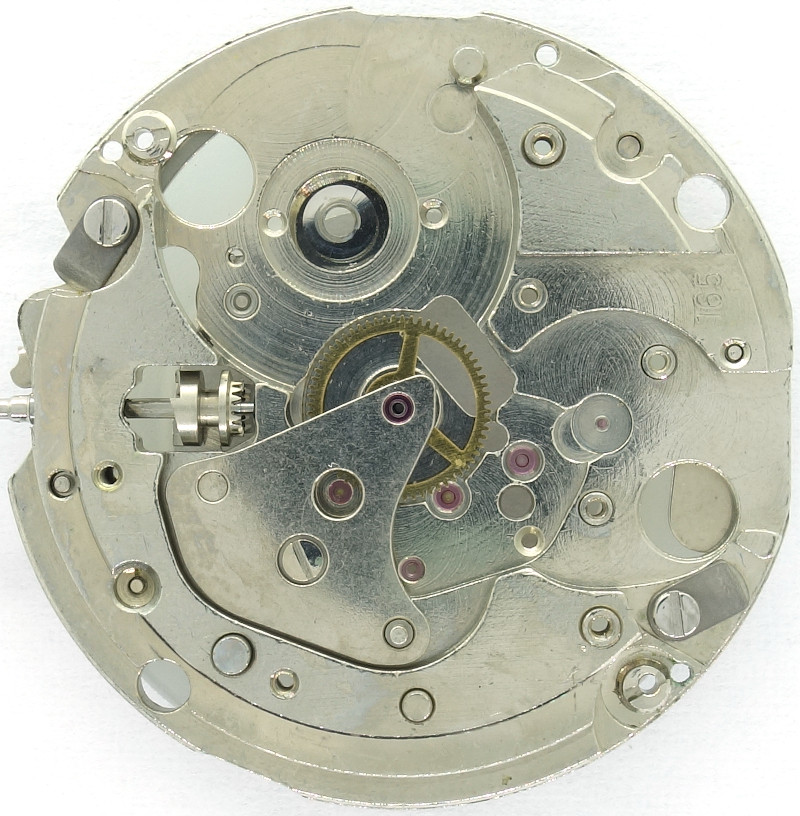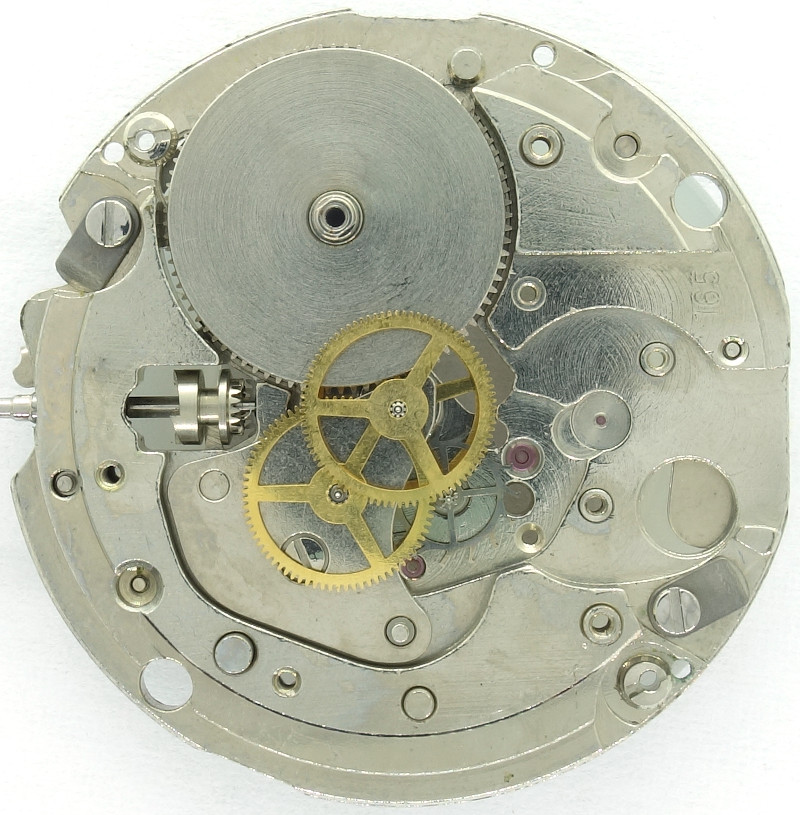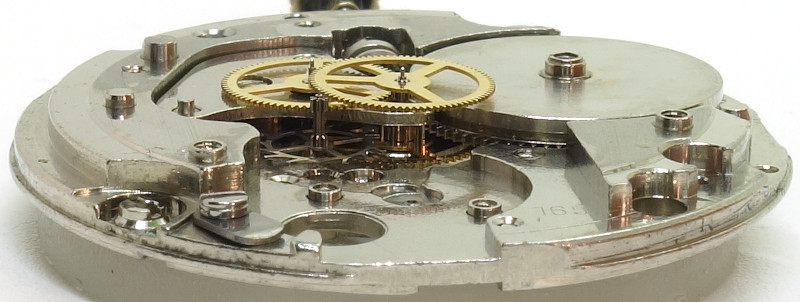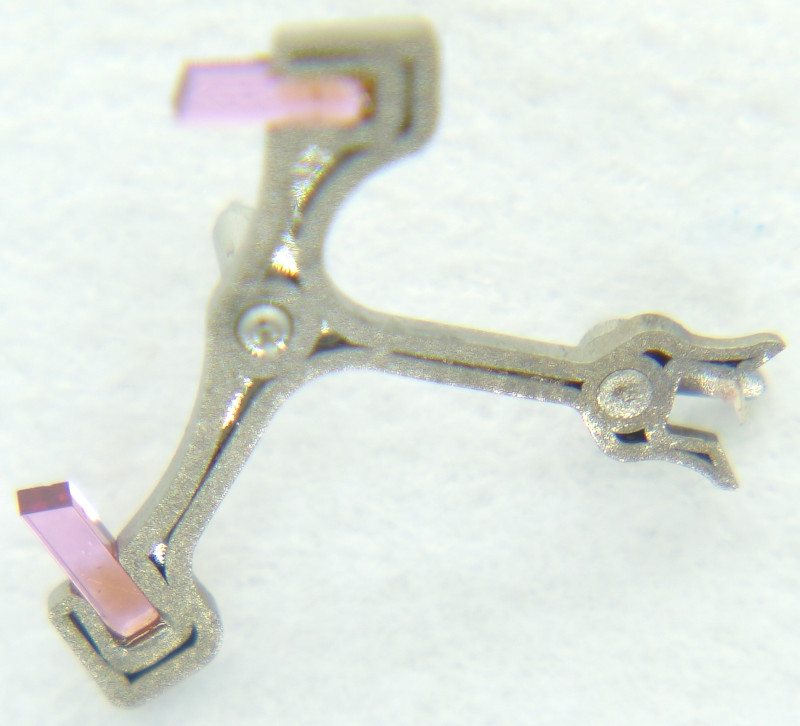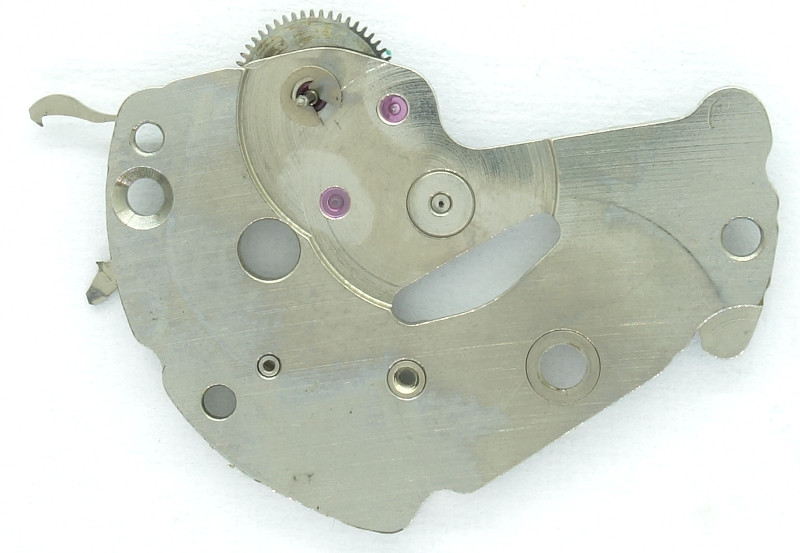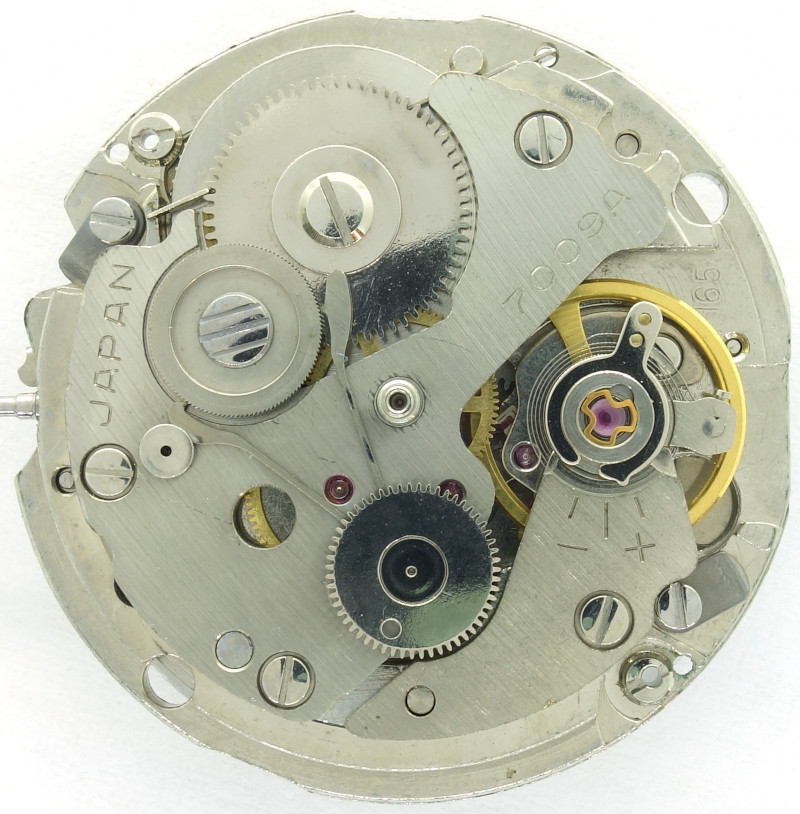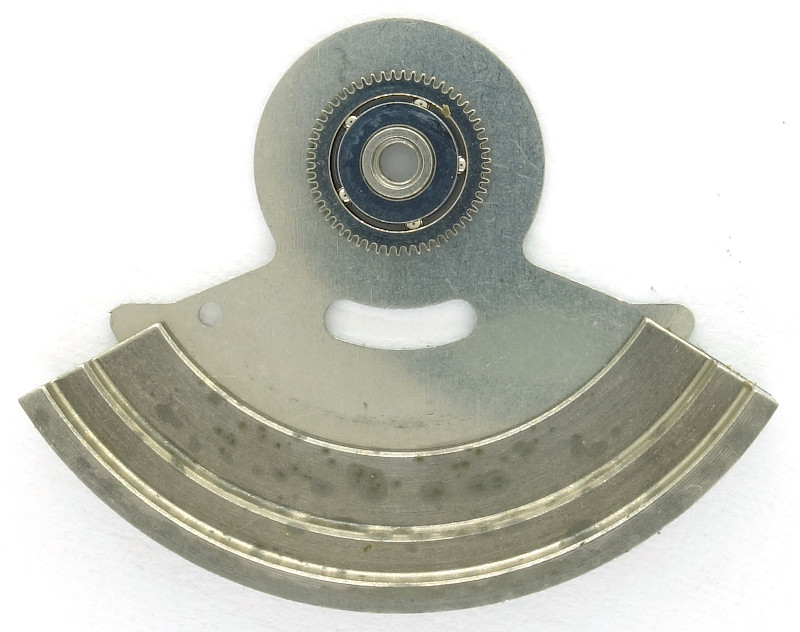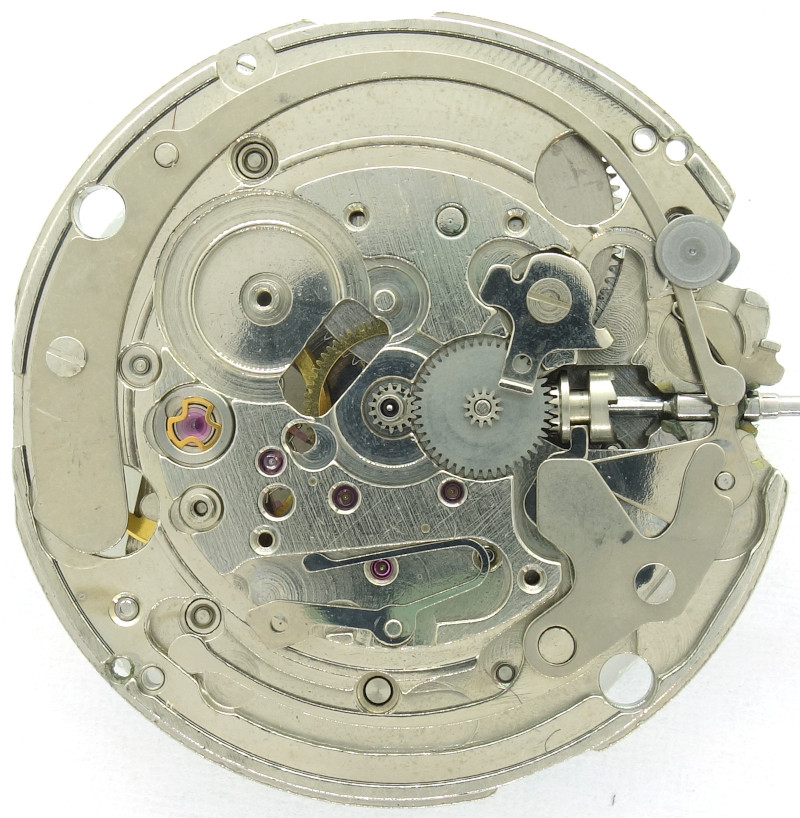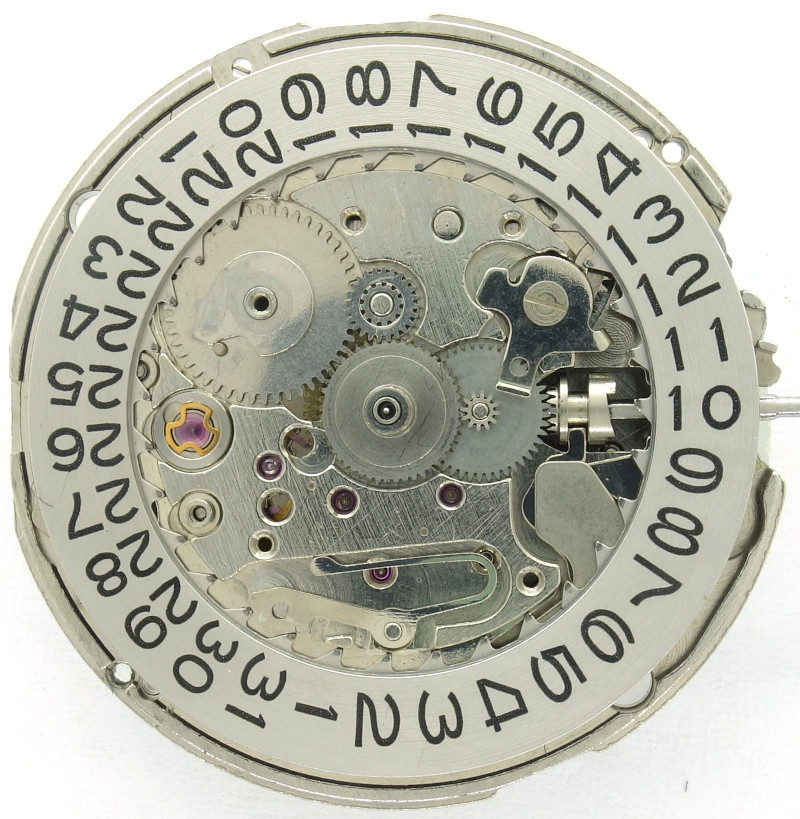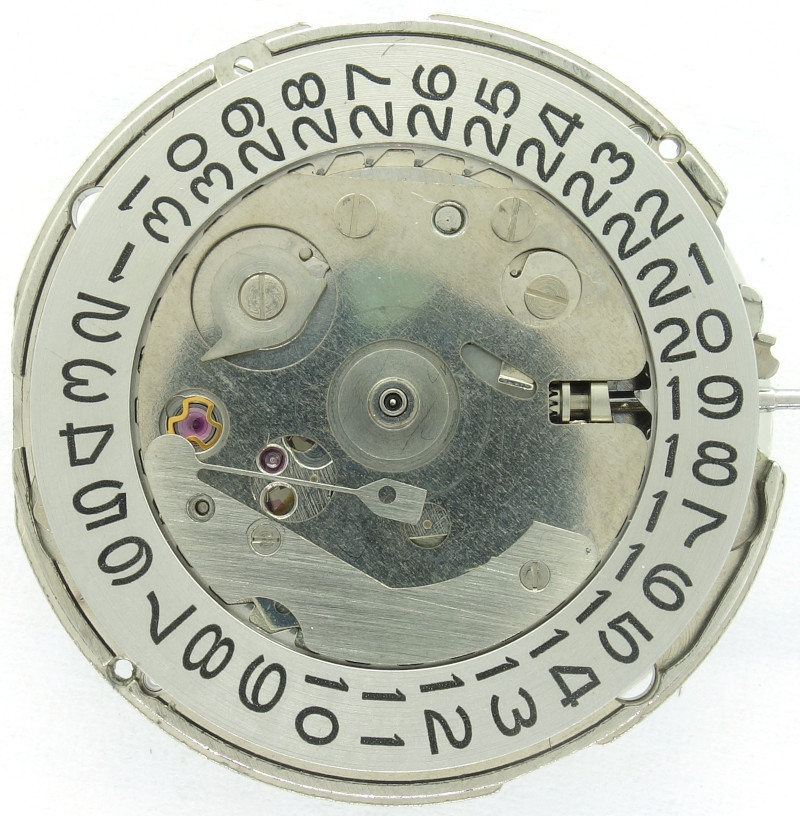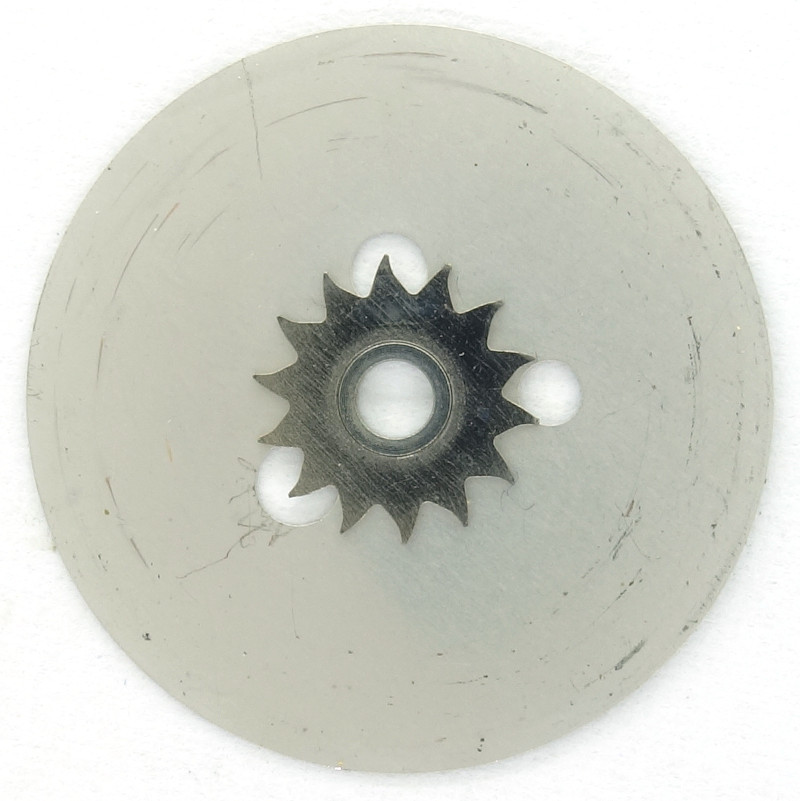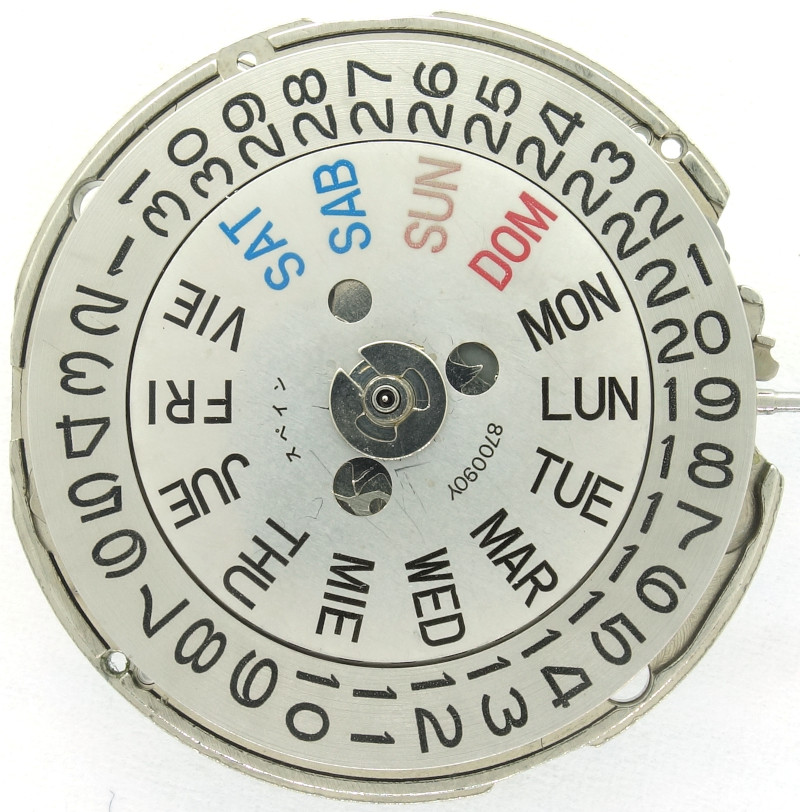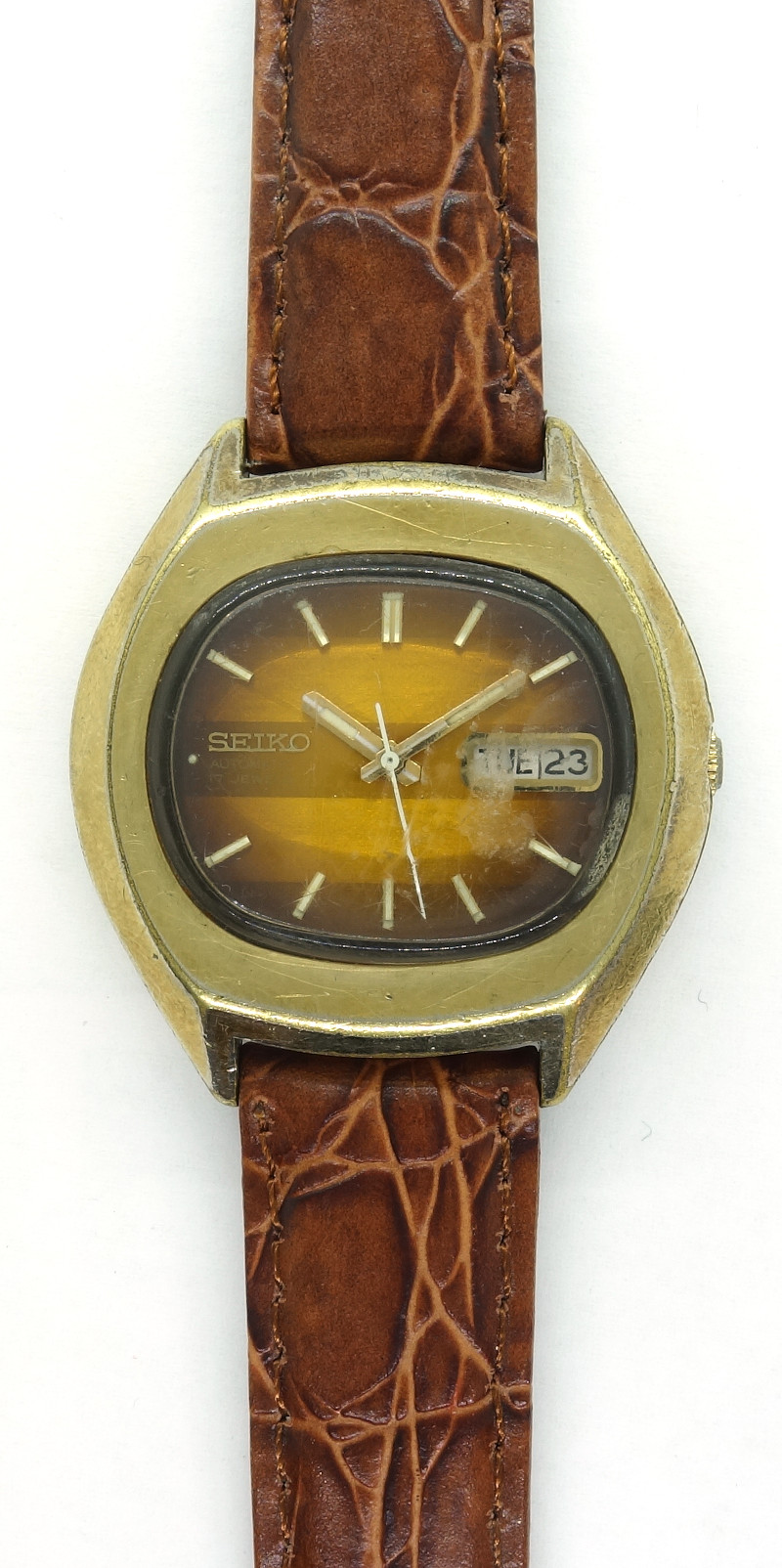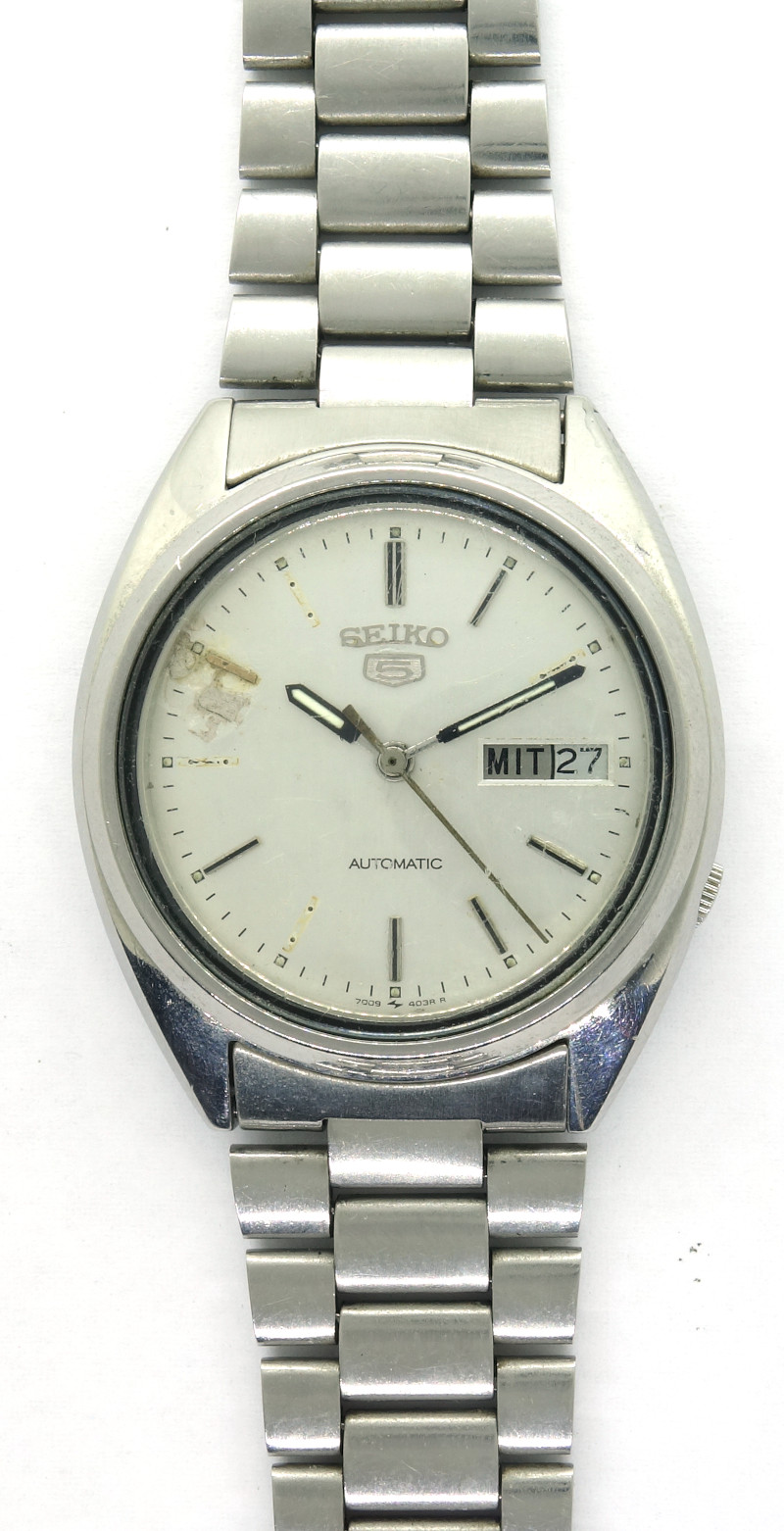Description
In the late 1970s, the selfwinding caliber Seiko 7009A was launched, mainly for powering the gents models of the “Seiko 5” series. It was the successor of the caliber 6119 and the predecessor of the well-known caliber 7S26.
With a diameter of 12 lignes (27mm) it was pretty large and ideally suitable for a day-date indication.
It was economically constructed, no wonder, because in the 1970s, every manufacturer of mechanical movements had to struggle with the upcoming quartz movements.
Nevertheless, we have a massive construction here, well made, with every important bearing (even that of the minute wheel) containing a synthetic ruby.
The center minute whee shows, that no compromises were made with the construction. Watches with this movement had to be reliable and precise over a long time.
A noteable detail of the gear train is, that except the escape wheel, all wheels have three legs and seem to be punched out.
The gear train uses the classical construction: Mainspring barrel, center minute wheel, third wheel, directly driven center seconds wheel and escape wheel.
As escapement, a swiss pallet lever is used.
The Seiko 7009A uses a two leg anular Glucydur balance, which is beared between two inhouse Diashock bearings. It beats with 21600 A/h, which can be adjusted at the hairspring key only.
The lever is a remarkable construction, it is not massive but hollow!
An oddity is, that the upper center seconds wheel bearing does not contain a ruby, but is a simple metal drilling.
On the other side, the “Magic Lever” wheel is ruby beared, even on two sides!
This excenter wheel has got two pawls, which alternately engage with the reduction wheel. One of the pawls drives it, while the other one slips through the freewheel. You can hardly imagine a more simple selfwinding mechanism.
A note about the ratchet wheel screw: It is very stable, because for a watchmaker, turning the ratchet wheel directly is the only way to wind the movement, which doesn’t have a manual winding possibility.
The oscillating weight has got a pretty large ball bearing, which ensures longevity and functional reliability.
All springs, which are part of the winding and calendar mechanism are secured, so that they cannot fly away accidentially.
The Seiko 7009A has a day-date indication with quick correction. To correct the date, the crown must be pulled to the middle notch position, whereby the Breguet pinion (far right at 3 o’clock in the picture) engages the notch of the date ring and advances it. The movable switching cam of the date switching wheel at 10 o’clock prevents damage to the date mechanism if it is corrected by hand during 10 p.m. and midnight.
The date disc is advanced by an attachment on the swiching wheel, but can also be corrected manually by pushing the crown. This push moves the correction lever at position 2 o’clock accordingly.
The day of the week disc has 14 positions, with two consecutive positions intended for the same day of the week, just in different languages. The “normal” switching via the date wheel must therefore always switch two positions forward, and the language can only be changed by pushing the crown.
Until it was replaced in the mid-1990s, the Seiko 7009A was manufactured in large numbers, and certainly quite a few of them are still running today without ever having received a service.
In the lab
Timegrapher result
Although the case shows heavy signs of wear, the movement is technically in a very good condition, as the timegrapher results show impressively. The low amplitude is typical for Seiko.| horizontal positions | |||
|---|---|---|---|
| dial up | +6 s/d | 242° | 0.0ms |
| dial down | +2 s/d | 253° | 0.0ms |
| vertical positions | |||
| crown right (12 up) | -5 s/d | 220° | 0.0ms |
| crown up (3 up) | +4 s/d | 220° | 0.0ms |
| crown left (6 up) | +9 s/d | 219° | 0.3ms |
| crown down (9 up) | -4 s/d | 206° | 0.3ms |
Technical data
| Manufacturer: | Seiko |
| Caliber: | 7009A |
| Size: | 12''' (measured: 27,0mm) |
| Height: | 4,90mm |
| A/h: | 21600 |
| lift angle: | 53° |
| Number of jewels: | 17 |
| Escapement: | Pallet lever |
| Balance types: | Glucydur anular balance |
| Shock protection(s): | Diashock (Seiko) |
| Balance bearing / direction hairspring: | Counterclockwise |
| Moveable stud: | yes |
| Adjust mechanism: | Hairspring key |
| Construction: |
|
| Construction type: | solid construction |
| Winding mechanism: | yoke winding system |
| Setting lever spring: | 2 holes |
| Features: |
|
| Inventory number: | 23071 |
